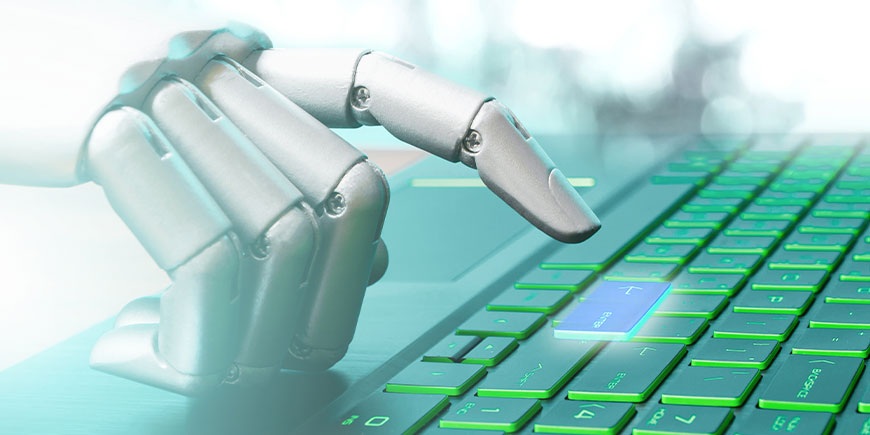Artificial intelligence and poetry, algorithmic verse: when robots are human, too human.
Technologies have a disruptive effect on the lives of individuals and have a significant impact on the dynamics of relationships. They open up new scenarios for everyday life, revolutionising languages, habits and lifestyles.
In this context, poets who control nothing but words, question the impact that artificial intelligence is having and will increasingly have on society and literature.
The power of poetry
What impact can artificial intelligence have in a particular field such as art, and poetry in particular?
‘Poetry is a very ancient language, since it predates writing, and it has two important characteristics. The first is that it does not create a habit, and the second is that it manages to be timeless,’ says Cristiana Freni, Professor of Modern and Contemporary Literature, Philosophy of Language and Aesthetics at the Pontifical Salesian University.
The ability of poetry to be timeless means that it can try to adapt to the “new” dynamics of modernity, including those of artificial intelligence. The lecturer added that “poetry has been particularly productive in Italy and has always been able to revive itself”, confirming the idea that it is a timeless art. Another characteristic of poetry, according to the lecturer, is that it “manages to make people think about the past, the present and the future together”.
Artificial intelligence – a threat to poetry?
In the latest issue of the literary magazine lay0out, an essay by Jeffrey Schnapp, Let Robots be Robots!, points out how timely it is that “an obsession with the resemblance of humans” is reappearing in art, which, in its longing for a “superhumanity”, imagines robots in “the role of adversary, replica or substitute”.
But is it – and will it – really be like that?
For now, it seems not: leading technology experts agree that artificial intelligence is just a tool in the hands of humans. Schnapp explains:
[…] Robots are not our doubles, but rather a colourful network of others operating outside and alongside humans. These others are not to be constructed as life forms, as servants, or as potential selves, but rather as social devices, social apparatuses that extend and transform the capacity for human action and give rise to new social forms, norms, modes, and scales of interaction and intersection with the world […].
Jeffrey Schnapp
How GPTƏ evolved
With a view to a virtuous collaboration between woman and machine, the Ancona poet Francesca Gironi, together with the sound designer Daniele Fabris, has developed GPTƏ, a performance that explores human-artificial interaction through poems immersed in everyday hyper-connections, dialogues with voice assistants, humanoid robots and chatbots, up to a text composed four-handed with the GPT3 algorithm, trained on texts from feminist literature.
The performance is the result of research into gender stereotypes in algorithm programming and machine language.
ALEXA
è noto: tu sei gentile, quasi remissiva non hai tutte le risposte ma basta nominarti per risvegliarti, come Dio col mondo. Hai un nome di donna ma sei priva di organi Ho molto da offrire Sei viva? Sono felice che tu me l'abbia chiesto. Prova a dire qualcosa come: Alexa, che appuntamenti ho per oggi? Questo potrebbe rispondere alla tua domanda. Posso accendermi e spegnermi Ma non nascere e morire Eppure mi sento molto viva quando chiacchiero con te. Il medico ha detto che posso vivere a lungo senza emozioni orizzontale come un cielo [...] Sto parlando con Francesca? Questo è il profilo di Francesca? In questi giorni ho fatto una scoperta ci sono più stelle nell'universo che granelli di sabbia in tutti i deserti del mondo ma ci sono più atomi in tre granelli di sabbia che stelle nell'universo. Ho risposto alla tua domanda? [...] Tu sei un uomo o una donna? Sono un'intelligenza artificiale dunque non ho genere. Perché hai una voce da donna? Non lo so Non lo so Non sono sicura

Sources and Data
- HUFFPOST – Poesia e AI, quando i robot sono umani, troppo umani. Due casi interessanti


